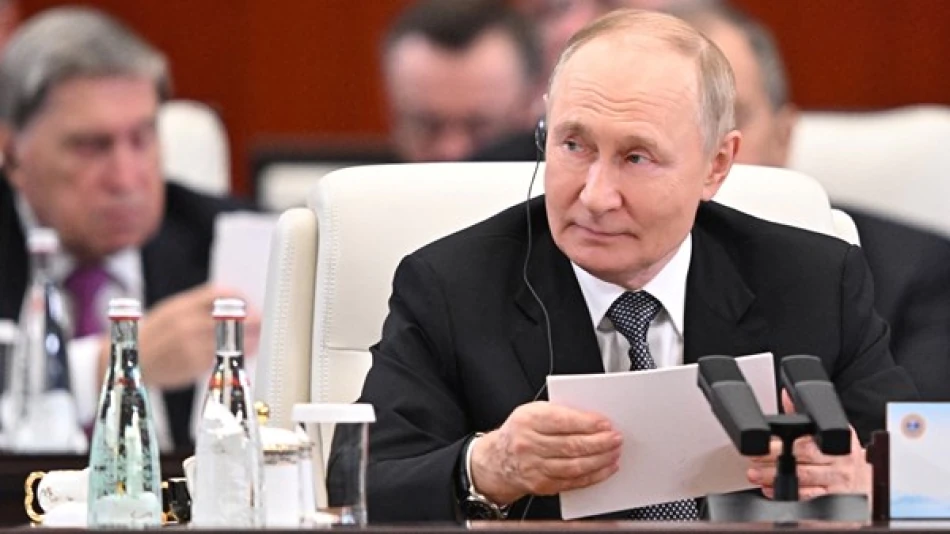
Putin Sets Condition for Restoring Peace in Ukraine
Putin Demands NATO Rollback as Precondition for Ukraine Peace Deal
Russian President Vladimir Putin has doubled down on his core demand that NATO's eastward expansion must be reversed to achieve any lasting peace settlement in Ukraine. Speaking at the Shanghai Cooperation Organization summit, Putin framed the conflict as fundamentally about Western security architecture rather than territorial disputes, signaling that Moscow's maximalist positions remain unchanged despite nearly three years of war.
The Security Architecture Gambit
Putin's Monday remarks reveal Russia's strategy of linking any Ukrainian settlement to broader European security arrangements. By demanding the elimination of what he calls the "root causes" of the crisis, Putin is essentially asking NATO to abandon its open-door policy—a cornerstone principle since the alliance's founding.
The Russian leader specifically cited NATO's 2008 Bucharest Summit, where alliance leaders declared that Ukraine and Georgia would eventually become members. This promise, though never acted upon with concrete timelines, has remained a persistent irritant in Russia-West relations and served as one of Moscow's primary justifications for the 2022 invasion.
Constitutional Commitments Create Complications
Ukraine's 2019 constitutional amendment enshrining NATO and EU membership as strategic goals adds another layer of complexity. Any peace deal requiring Ukraine to abandon these aspirations would essentially demand constitutional changes—a politically explosive proposition for any Ukrainian government, especially after enduring a costly war of aggression.
The China-India Mediation Card
Putin's praise for Chinese and Indian mediation efforts reflects Russia's broader pivot toward non-Western powers as potential arbiters. Both countries have maintained studied neutrality throughout the conflict, continuing economic relationships with Russia while avoiding explicit endorsement of the invasion.
This approach mirrors successful mediation models from other conflicts, where regional powers with economic stakes in stability have facilitated negotiations. China's particular influence stems from its position as Russia's largest trading partner and its significant economic relationships with European nations affected by the war.
Trump Factor Looms Large
Putin's reference to "understandings" reached with Donald Trump suggests Moscow believes the incoming U.S. administration may prove more receptive to Russian demands than its predecessor. Trump's historical skepticism toward NATO expansion and his transactional approach to foreign policy could create openings for the kind of grand bargain Putin appears to envision.
However, any U.S. concessions on NATO expansion would face fierce resistance from European allies, particularly those in Eastern Europe who view the alliance as their primary security guarantee. The political feasibility of such arrangements remains questionable even under a Trump presidency.
Market and Strategic Implications
Putin's hardline stance suggests the conflict may persist longer than many investors and policymakers anticipate. Energy markets, already volatile due to sanctions and supply disruptions, are likely to remain unstable as long as fundamental disagreements over European security architecture persist.
For defense contractors and cybersecurity firms, Putin's demands signal continued high spending on military capabilities across NATO countries. The alliance's eastern members are particularly likely to accelerate defense investments if they perceive any weakening of security commitments.
The emphasis on non-Western mediation also highlights the ongoing fragmentation of global diplomatic influence, with implications for everything from trade relationships to technology standards. Companies operating in multiple jurisdictions may face increasingly complex compliance environments as geopolitical blocs solidify.
Most Viewed News

 Layla Al Mansoori
Layla Al Mansoori






